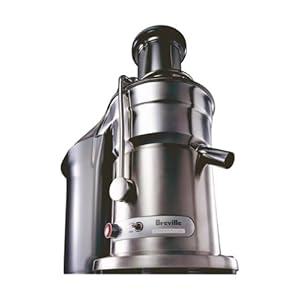Juicing 101 - Getting Started on the Road to Health and Vitality
Juicing is a wonderful way of getting your daily servings of fruits and vegetables. Research has shown the numerous health benefits of raw Food consumption because of the higher availability of nutrients and vitamins, and juicing speeds the uptake of these nutrients.
If you are just starting out, the process can seem overwhelming at first. What to juice? Which ingredients to combine? What to avoid? These questions are important, but please don't let them prevent you from discovering all the amazing health benefits that juicing can offer. With a little research and practice, you can be an expert in no time.
To get you started, here are the top concerns expressed by most beginners and my advice for adDressing those concerns:
1) What kind of Juicer should I buy? When you buy something, get the highest quality that you can afford. It will end up costing you less in the long run. That's what my Pop always told me. I think this is certainly true for juice extractors. The better your machine, the more you'll enjoy using it and the more durable you will want it to be. Personally, I like the Breville Juice Fountain juicers. There are several models ranging from about 0 to around 0. Each one is among the highest quality juice machines in their price range.
2) Why is juicing better than just eating the same Food? Some claim that the benefit of juicing lies in the fact that your body assimilates the highly concentrated nutrients into the bloodstream more quickly, and that eating whole food takes a lot longer to digest and process. In addition, there is some evidence that a large portion of the nutrients are locked in the indigestible fiber and are therefore never utilized by the body. Juicing effectively separates those nutrients from the pulp and you get almost 100% of those nutrients.
To me, the real benefit of juicing is its ability to deliver the right amount of fruit and vegetables each day. Are you going to eat 10 servings of fruits and vegetables every day? I know I'm not. But it is very easy and enjoyable to make up the difference in the form of fresh juice.
3) What foods should I put in my juicer? There are hundreds of websites where you can access juicing recipes and the specific health benefits associated with each. Seek them out and start experiMenting. First though, start out simple with apples, watermelon and carrots. I also recomMend you dilute your juice at first in order to minimize the laxative effect that this dietary change can bring on. Once you get the hang of it, you can begin adding other fruits.
Juicing green vegetables provide excellent nutritional benefit. Spinach, cucumber, celery, parsley, beets, tomato, and leafy greens are all good choices. The flavor might be too intense and "grassy" for some folks, so experiment by incorporating some fruit or carrot juice to improve the taste.
4) How long will fresh juice last and how should I store it? Fresh juice can be stored in the refrigerator for up to 24 hours. Any longer and the health benefits are gone. You can also freeze it, but I never do.
5) Should I include the skin, rinds and seeds? Usually, yes. Most of the nutrients are just below the surface of the skin so in most cases you should use the peel. Even cantaloupe and pineapple skin should be used. Peel citrus because the rind is quite bitter. Most small and/or soft seeds are OK. Hard pits should be removed and not put inside your juicer.
6) What about pesticides and wax on fruits and vegetables? Soak anything you plan to juice in a mixture of water and about 4 ounces of cider vinegar for about 10 minutes and then wash it really well. This strips off the wax and pesticides. Organic produce is a more expensive alternative. However these should be thoroughly cleaned too. Finally, there are good vegetable washing products available at most grocery stores. The one I use is called "Fit" and is found in the fresh produce section.
7) What do I do with the pulp? There are many recipes for using the pulp (fiber) in baking, sauce and soup recipes. You can also just throw it away. I put mine down the disposal when I don't have a specific use for it. On a side note, don't enTirely replace your diet with juice. Your body needs fiber. Juice should enhance the diet, not replace it.

No comments:
Post a Comment